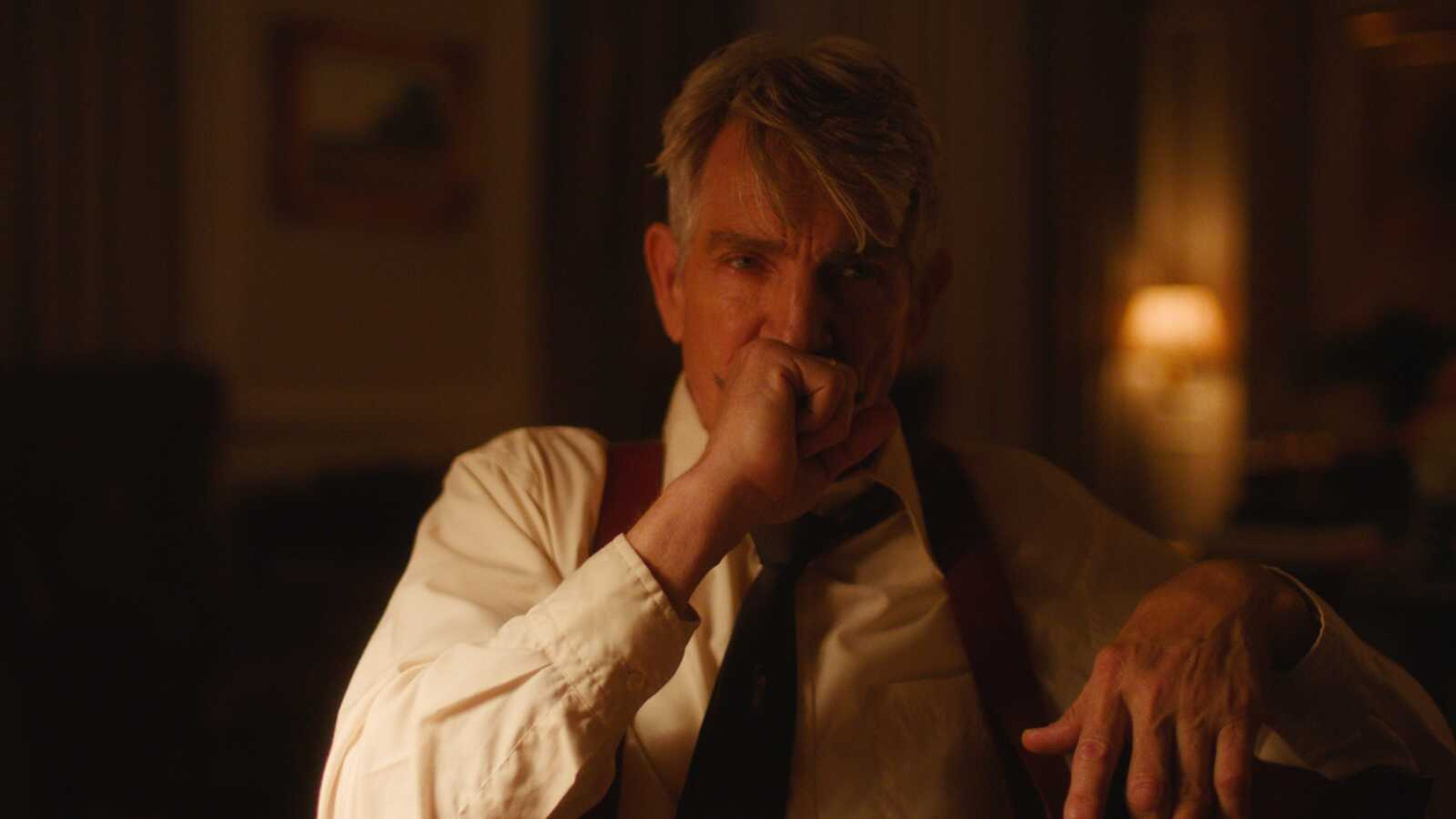SEMO set to screen Faulkner documentary next month
Southeast Missouri State University is known across the globe for its William Faulkner collection. That collection, housed in Kent Library as part of the Center for Faulkner Studies, is now part of a documentary. Retired university professor and active author Dr. Bob Hamblin and former director of the Center for Faulkner Studies, Christopher Rieger, were interviewed among other world-renowned scholars for the film...
Southeast Missouri State University is known across the globe for its William Faulkner collection.
That collection, housed in Kent Library as part of the Center for Faulkner Studies, is now part of a documentary.
Retired university professor and active author Dr. Bob Hamblin and former director of the Center for Faulkner Studies, Christopher Rieger, were interviewed among other world-renowned scholars for the film.
The university is planning a public showing of a documentary on the life of Faulkner, the first such documentary made with the blessing and cooperation of the Faulkner estate, and the first major documentary on Faulkner since the 1970s.
The event will be held at 7 p.m. Tuesday, Nov. 14, at the Rose Theater, with an alumni event planned before the showing and a panel discussion after.
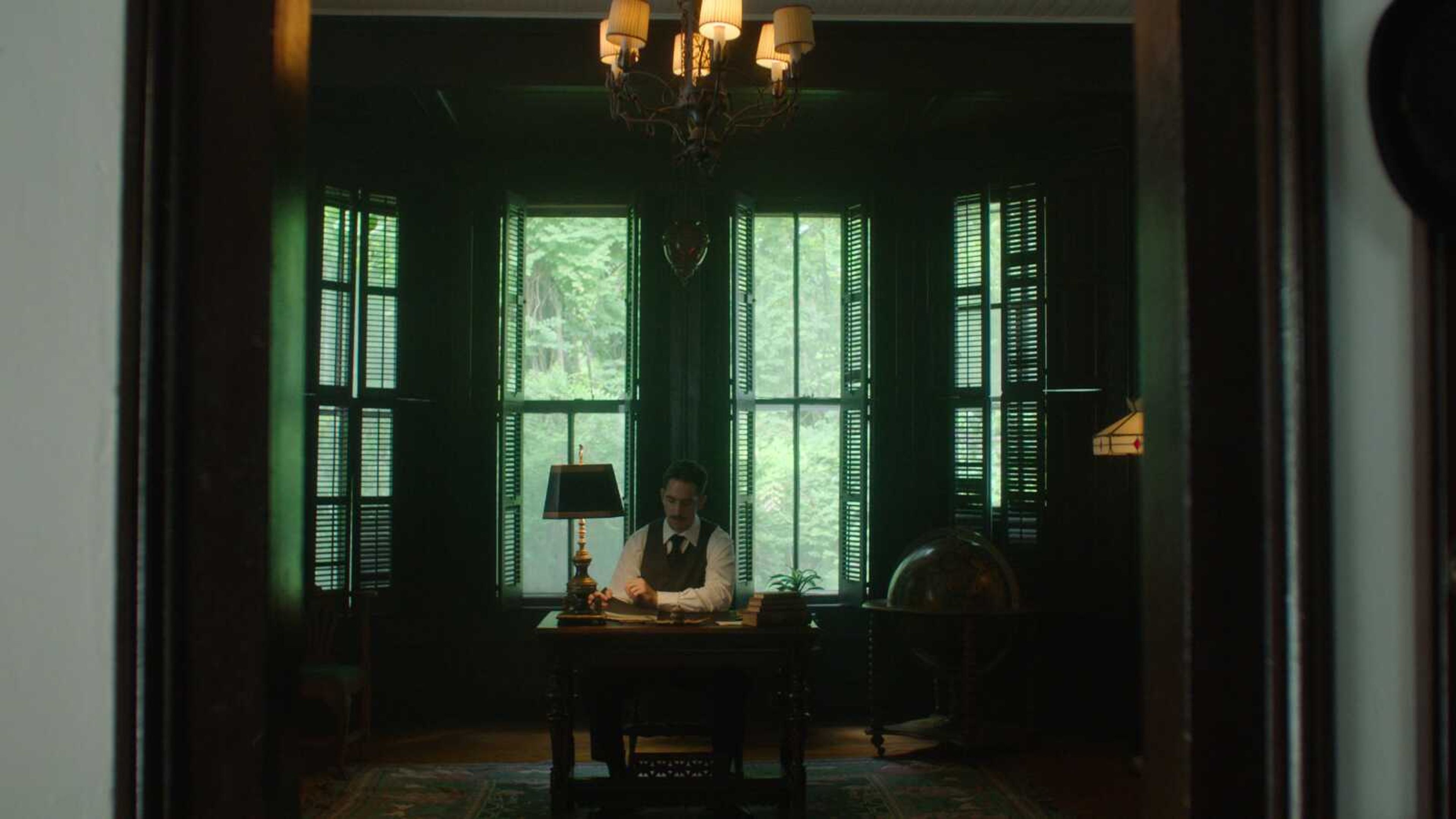
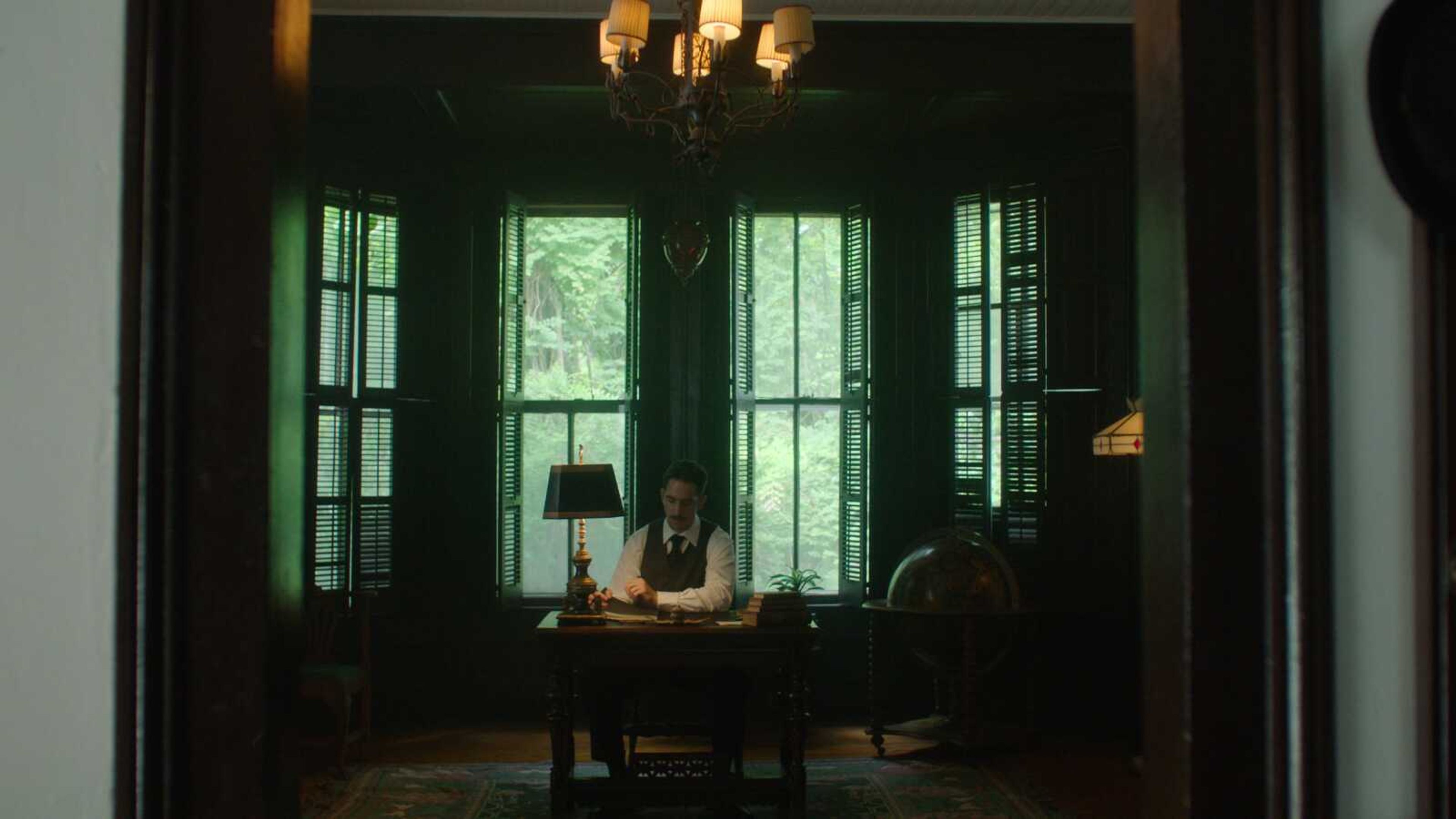
The film, "Faulkner: The Past is Never Dead", is not yet available to the masses except at film festivals and special events, such as the one planned at Southeast. It was written and directed by Michael Modak-Truran, who says the documentary is suited for Faulkner devotees and novices.
Filmmakers spent a couple of weeks filming at Southeast in 2018. The film, which was five years in the making, includes interviews with Hamblin, who was partly responsible for bringing the collection, originally owned by St. Louisan Louis Daniel Brodsky, to the university.
"SEMO was a steadfast partner through the entire process," Michael Modak-Truran said. "We are grateful to the entire SEMO team for their invaluable contributions."
Hamblin attended the premier of the movie earlier this year in Mississippi.
"The documentary is beautifully done," Hamblin said. "The actor they found to play Faulkner does a tremendous job. They found other people to play different roles. The dramatization was well done, and the photography is sensational."
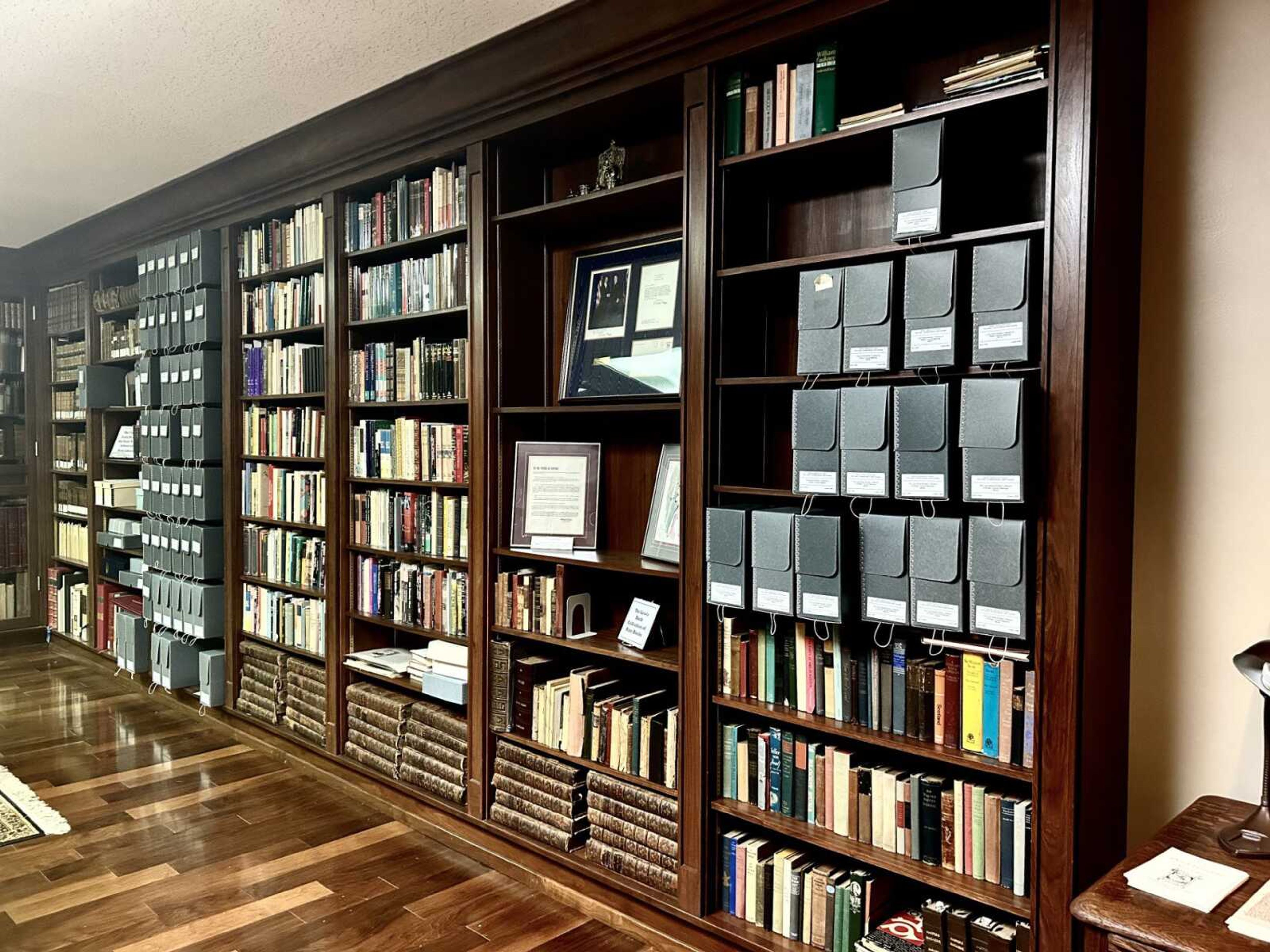
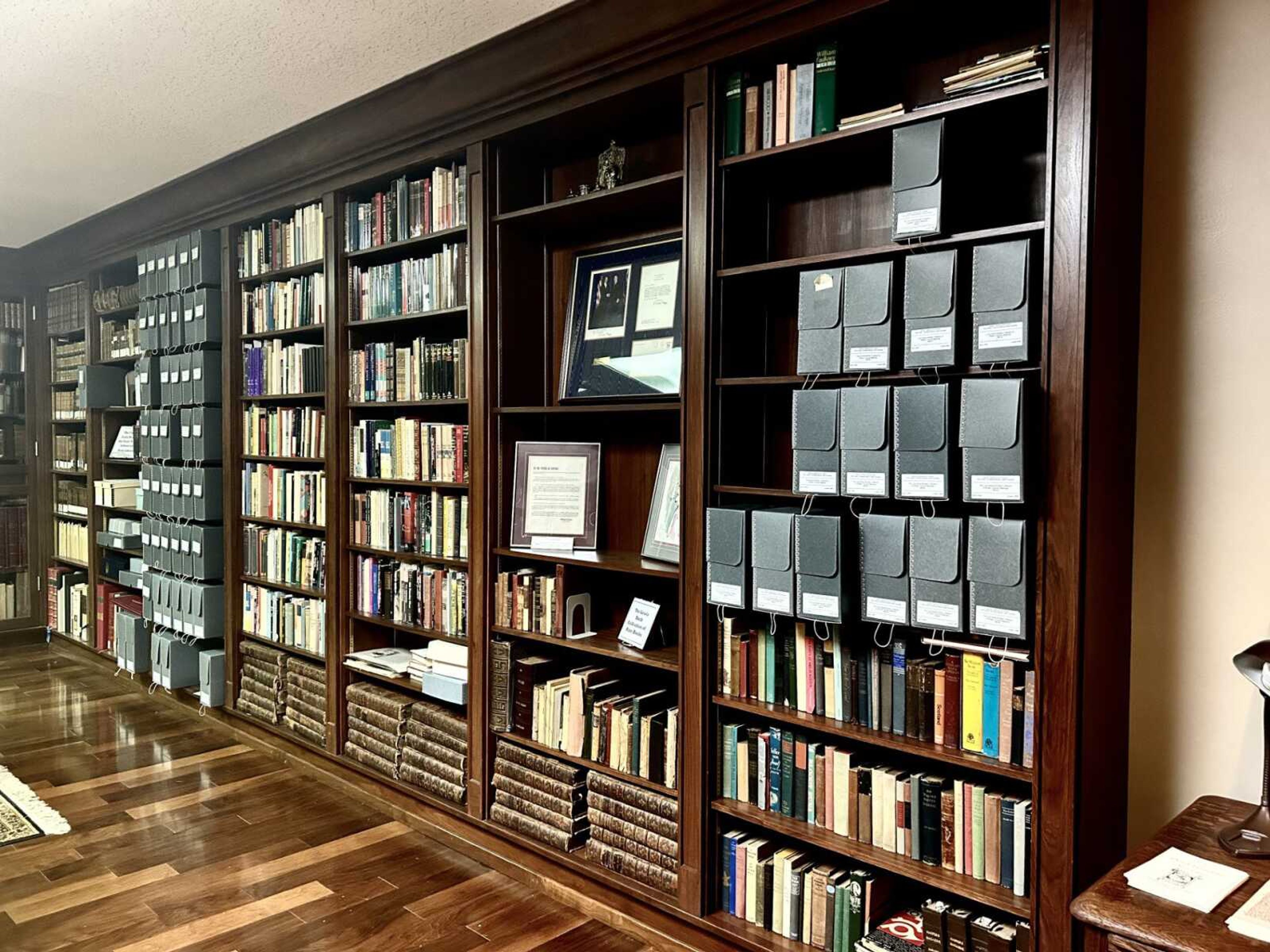
Hamblin said he was among a dozen or so scholars who were interviewed.
Faulkner, a pipe-smoking Southerner raised in Mississippi, is known as one of America's literary giants, among the likes of Mark Twain and Ernest Hemingway. Hamblin said Faulkner has been called "the Shakespeare of the U.S." Faulkner is known to have taken risks in his writing, both in style and subject matter. He often told narratives through the stream-of-consciousness of his characters, sometimes eliminating punctuation altogether during these introspective passages or dialogue.
His stories often unfolded from multiple characters' perspectives, tackling tough issues regarding race and slavery through conflicting viewpoints. His multi-perspective, running-faucet style often confused readers trying to piece together the truth of the story. His work forced readers to contemplate the complexities of history and race, with consideration for who is telling that history. In this way, many scholars believe Faulkner's work is still relevant, long after his death in 1962. The documentary follows these themes of race through Faulkner's writings and experiences.
Executive producer Anita Modak-Truran said the goals of the documentary fall into three categories: to introduce Faulkner's works to a new generation; to create an interactive tool in education in high school, colleges and universities; and to "bridge a dialogue on issues that are not past, and are still part of our lives today".
Hamblin said Faulkner's status as a writer was catapulted by his winning of the Nobel Prize. His relevancy expands into different circles. Literary specialists and writers tend to focus on his experimental technique and how he assembled stories through different perspectives. Others are more drawn by Faulkner's positions on racism in the South and his then-unpopular stances against racism in the 1950s and 1960s prior to the Civil Rights movement.
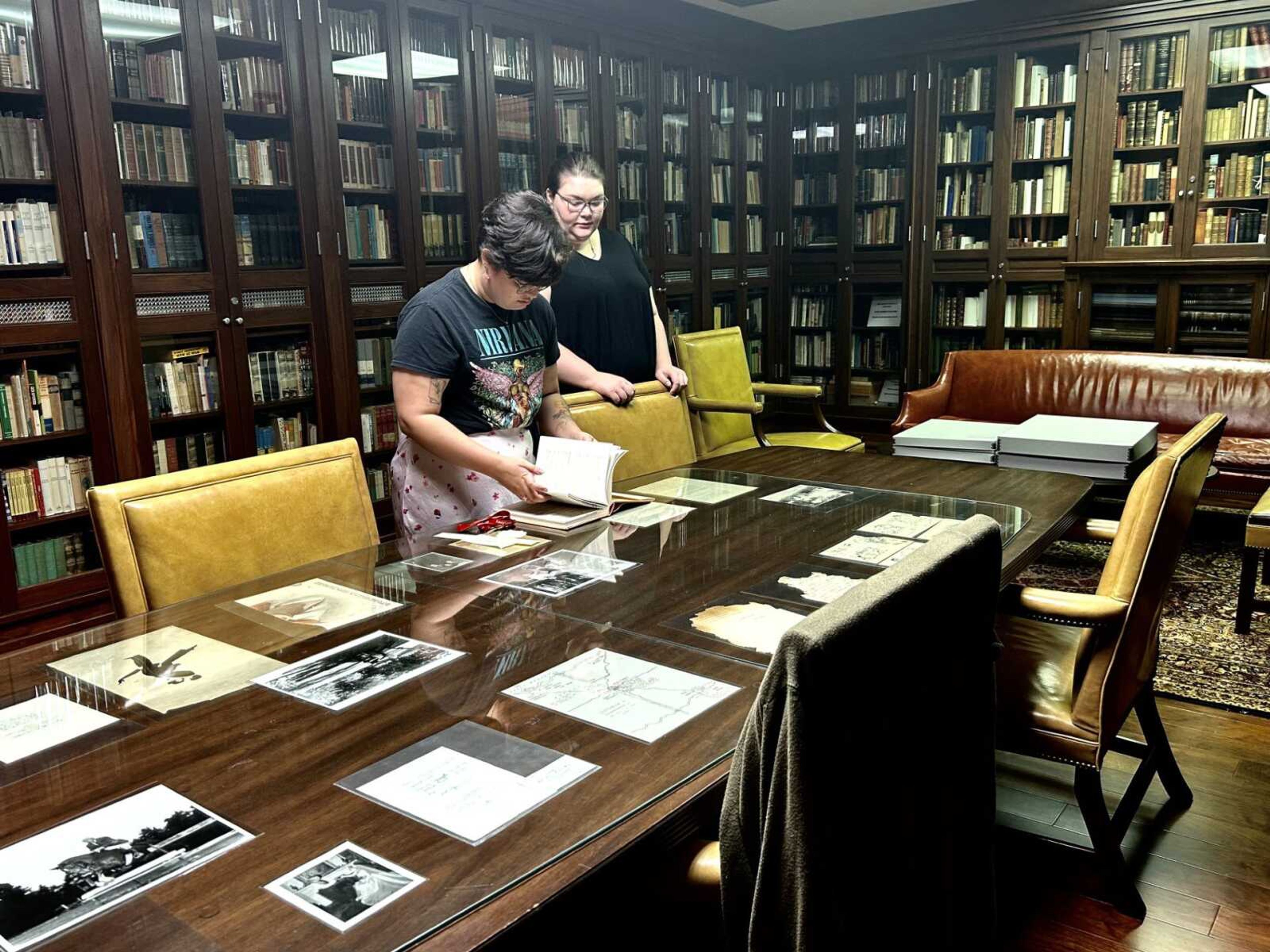
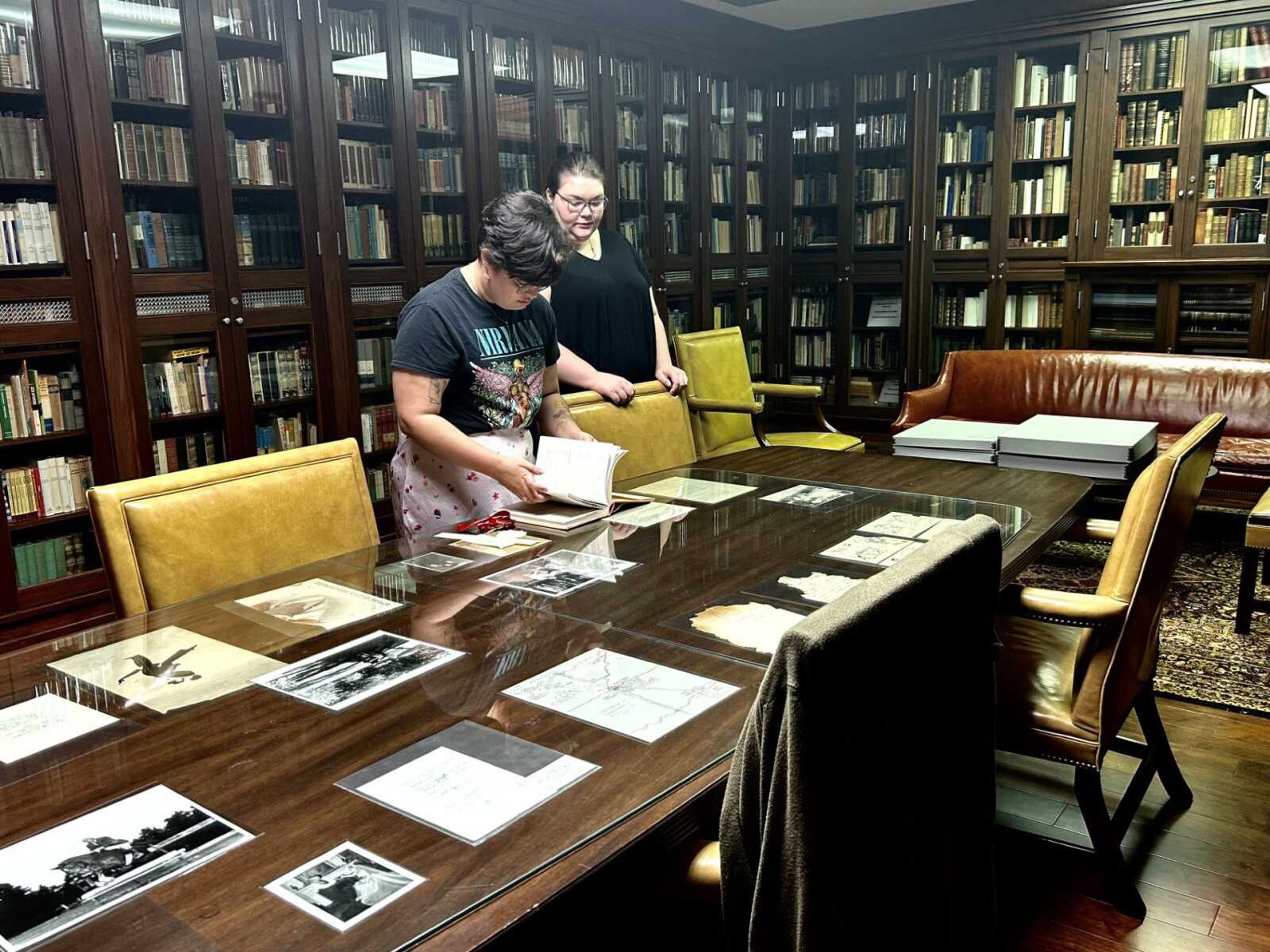
A trailer for the documentary opens with actor and narrator Eric Roberts reading words from Faulkner's writings: "My life's work was to create something which did not exist before. The problems of the human heart in conflict with itself. Only that is worth writing about."
The university acquired thousands of pieces from Faulkner's past from Brodsky in 1988 for $1.8 million, according to Southeast Missourian archives. Hamblin befriended the St. Louis native, and Brodsky sold the collection to the university for far less than the collection's appraised value of $3 million.
The Brodsky collection is one of four large collections in the world. All serious Faulkner scholars are aware of the items held at Kent Library, according to Tyson Koenig, special collections and archives librarian at SEMO. The university typically hosts Faulkner conferences every other year, though the conference in 2020 was canceled due to the COVID-19 pandemic. Over the years, the center has drawn thousands to the university, including many scholars from Asia and other parts of the world.
In addition to novels, Faulkner also wrote screenplays, poems and short stories. Among his most famous books were "The Sound and the Fury" and "Absalom, Absalom!"
Some of his books are approaching 100 years old. He wrote his first novel in 1925.
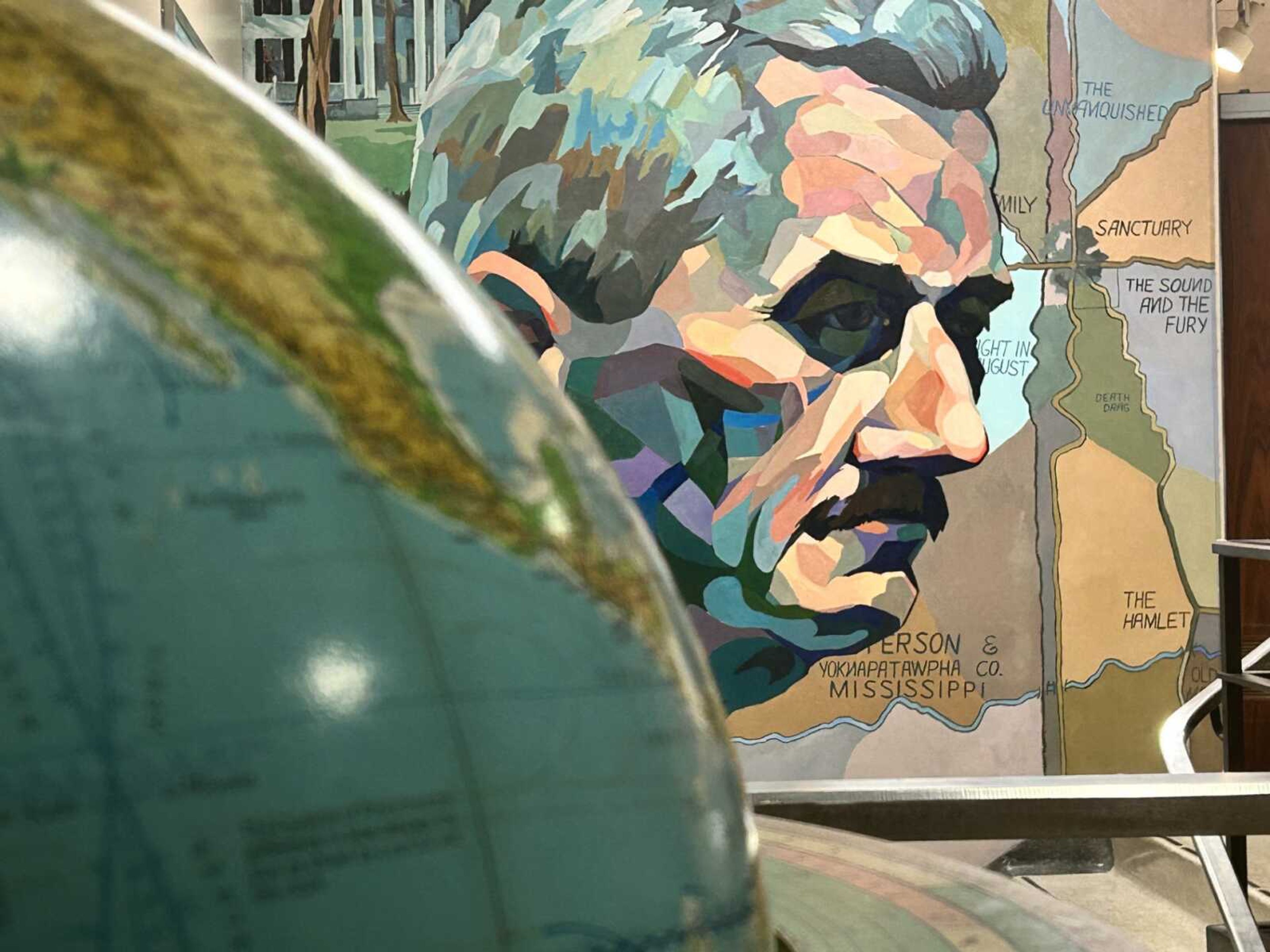
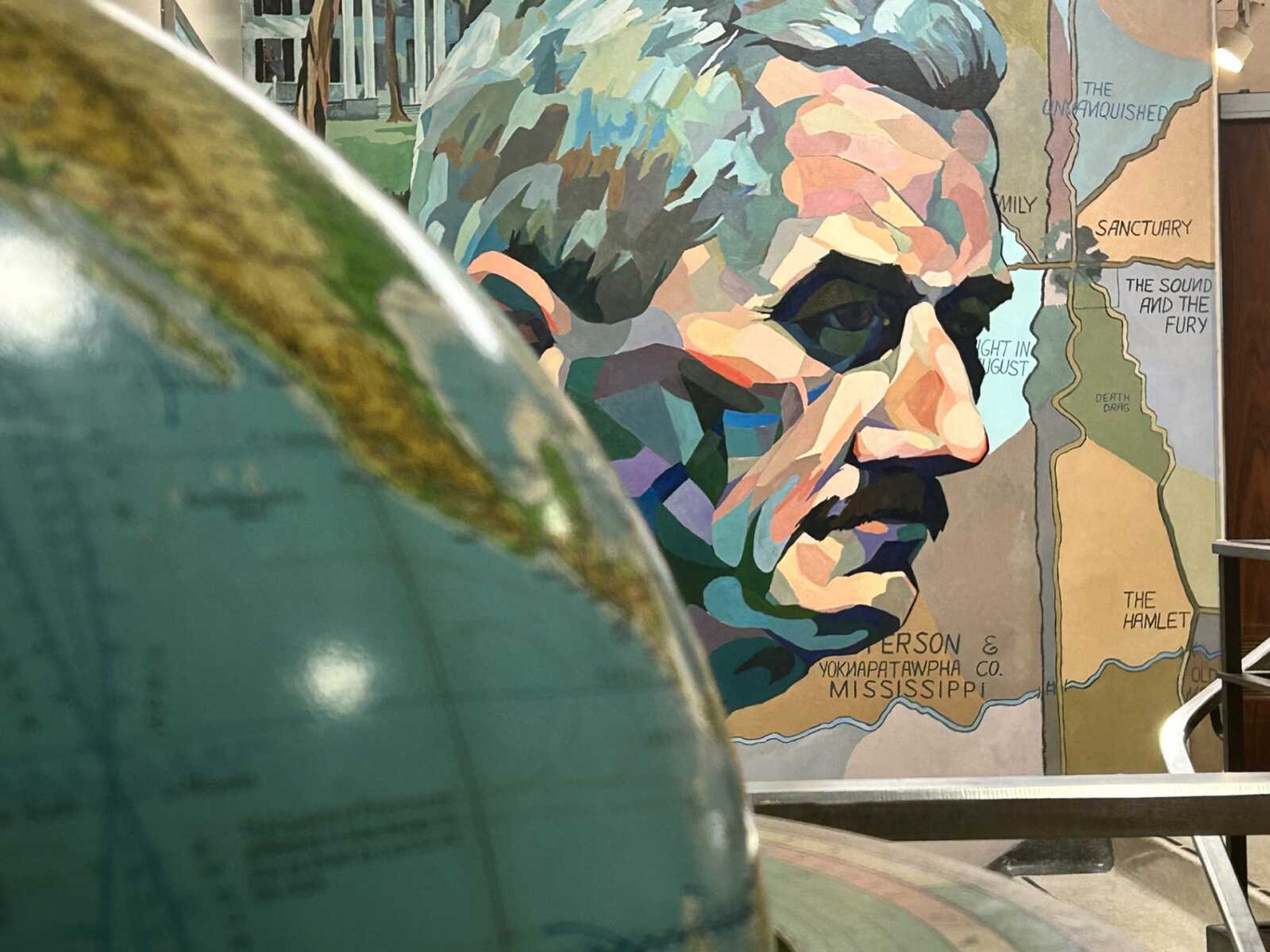
While all four of the world's major Faulkner collections contain their own strengths and weaknesses, Hamblin said, the collection at SEMO is unique for its possession of Faulkner's poetry work, his screenplays and photography. Faulkner worked for a time in Hollywood in order to make a living. Hamblin said Faulkner's screenplay prowess has only become appreciated in more modern times, thanks in part to the Brodsky collection. But Hamblin said the documentary focuses primarily on the social issues that Faulkner tackled throughout his career.
The Brodsky collection fills two walls in what's known as the Rare Book Room in Kent Library. It includes notes and drawings and hundreds of copies of signed books, including works not largely known by the public. The collection includes notes and letters from Faulkner's personal life.
"SEMO's rare book collection played a pivotal role in the documentary," Michael Modak-Truran said. "There are not many visual materials depicting William Faulkner's life. Many of those that do exist are at SEMO. For example, the archive includes many photos of Faulkner's family, his lovely illustrations, and documentation of his 'little postage stamp of native soil.'"
The documentary team is raising awareness of the film through special events like the one at Southeast, with a strategy to license the film with education partners and eventually a national broadcast on PBS.
Connect with the Southeast Missourian Newsroom:
For corrections to this story or other insights for the editor, click here. To submit a letter to the editor, click here. To learn about the Southeast Missourian’s AI Policy, click here.


